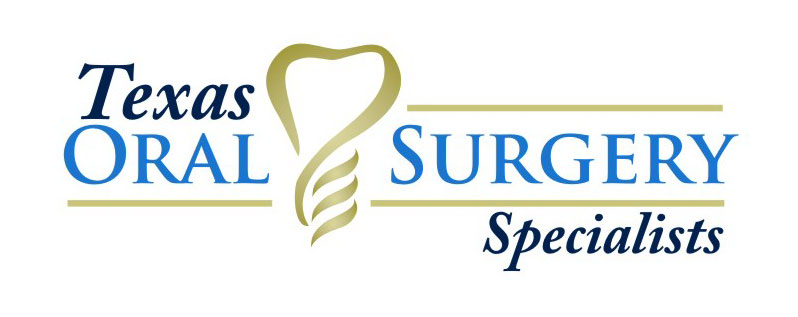Can My Dentist Safely Administer Intravenous (IV) Sedation?
At Texas Oral Surgery Specialists, Dr. Chris Tye is highly trained and qualified to meet your IV sedation needs. He routinely offers IV sedation for qualifying patients. If you are nervous or anxious, this option may be right for you.
While most dentists have the experience, education, and ability to administer local and minimal sedation, it takes additional education and certification to earn the right to administer moderate, deep, and general anesthesia.
For simple procedures, local and minimal sedation options are the best option. But when facing oral surgery, deeper levels of sedation not only improve patients’ perceptions, they allow the doctor to perform surgery better. Keeping patients relaxed, comfortable, and still allow the surgeon to complete procedures more effectively and efficiently.
Most oral surgeons offer a range of sedation options. During your consultation, discuss options with your doctor to ensure maximum safety and comfort and understand the risks and benefits.
What are the differences between sedation levels?
With sedation dentistry, there are generally five categories of sedation:
- Local
- Minimal
- Moderate
- Deep
- General
Local Anesthesia
Local anesthesia is administered as injections to numb the affected areas. This involves minimal pain and what patients generally consider a burning sensation.
After the injections, the patient experiences numbness. A pulling, tugging, or pressure sensation may be noted, but with proper doses, there is generally little or no pain.
This type of anesthesia is useful for minor treatments, such as root scaling and planing, fillings, or even root canals.
Minimal Sedation
Also known as anxiolysis, minimal sedation may include oral medication to relax an anxious patient. This should be taken at least half an hour before treatment to reduce anxiety and make the patient more comfortable. The patient will likely feel pain but not care about it due to the euphoric effects.
The patient remains awake with all reflexes and the ability to breathe and control their airway, but they are relaxed and comfortable.
Another excellent option for minimal sedation is nitrous oxide. Many people know this as laughing gas. It is a safe option that gives patients “the giggles” and helps them feel a “dreamlike” state. This gas is inhaled through a mask over the nose.
While oral forms of sedation will require patients to have someone else drive them home, most patients who receive nitrous are safe to drive after a few minutes of breathing 100 percent oxygen.
Moderate Sedation
With moderate sedation, intravenous (IV) medications are administered. While this does require an IV, it allows for access to the bloodstream and takes effect almost immediately. This also gives the doctor the ability to administer more medications if needed during the procedure.
With moderate IV sedation, patients generally remain awake but sleepy. They are very relaxed and comfortable and may fall asleep during procedures, but they arouse easily and maintain the ability to breathe on their own and maintain their airway without assistance.
Several IV medication options have the bonus of an “amnesiac effect.” This means that even if the patient does experience pain, they will forget about it.
Did it happen if you don’t remember it?
All patients receiving moderate sedation will require a period of fasting and a ride home.
Deep Sedation
With deep sedation, the patient is usually asleep but arousable. This level of sedation may require more than calling out their name to arouse them. Patients maintain the ability to breathe but may need assistance with maintaining their airway.
If the patient goes too deep, staff must be prepared and able to safely keep the patient oxygenated and breathing when necessary.
With deep anesthesia, most patients remember very little.
Deep sedation also requires fasting and someone to drive you home.
General Anesthesia
General anesthesia renders a patient unconscious. Reflexes are lost, including the ability to maintain the airway. Assistance is needed to keep the airway open. The patient’s ability to breathe on their own may also be absent. Staff should expect to provide airway management and augment breathing.
Dr. Tye and his staff are trained to immediately respond to any change in airway and breathing.
Since the patient is unconscious, there is no memory or awareness of the procedure.
With general anesthesia, the amount of time for fasting is usually longer. You are not allowed to drive for at least 24 hours after general anesthesia.
Who can administer moderate, deep, or general anesthesia?
Most people are familiar with the role of anesthesiologists. But do you have to be an anesthesiologist to administer anesthesia?
Not if you get the necessary training.
Again, most dentists can administer local and minimal sedation, but it takes specialized training and completion of a program in deep sedation and general anesthesia through the Commission of Dental Accreditation (CODA) to utilize more complex options.
This training includes rigorous education and residency to qualify them for accreditation to administer IV sedation. The Oral and Maxillofacial residency demands extensive training in IV sedation, anesthesia, and airway management.
Dentists who administer more than minimal sedation require this accreditation. Like most oral surgeons and dentist anesthesiologists, Dr. Tye holds this accreditation.
Before agreeing to treatment that requires sedation dentistry, do your research. Ask questions. Did your dentist go through a hospital-based residency? Did he get in-depth experience with anesthesia training? Does he know how to administer life-saving mediations and care in case of an emergency?
Contact Dr. Chris Tye for Your Oral Surgery Needs
With Dr. Tye, you can rest assured you will receive exemplary oral surgery with sedation that keeps you comfortable and includes continuous monitoring of your oxygen saturation, respirations, heart rate, and blood pressure.
In fact, Dr. Tye was the first-ever dual-licensed dentist in Tarrant County, holding both MD and DDS degrees.
Go with a doctor you can trust. If you are in the Southlake, Colleyville, Grapevine, or another mid-city area, Dr. Tye is your best choice for an oral surgeon. He puts patient comfort and safety first. His years of experience and extensive education makes him uniquely able to care for his surgical patients properly.
Contact Texas Oral Surgery Specialists online or call us today at (817) 552-3223 to schedule a consultation.


